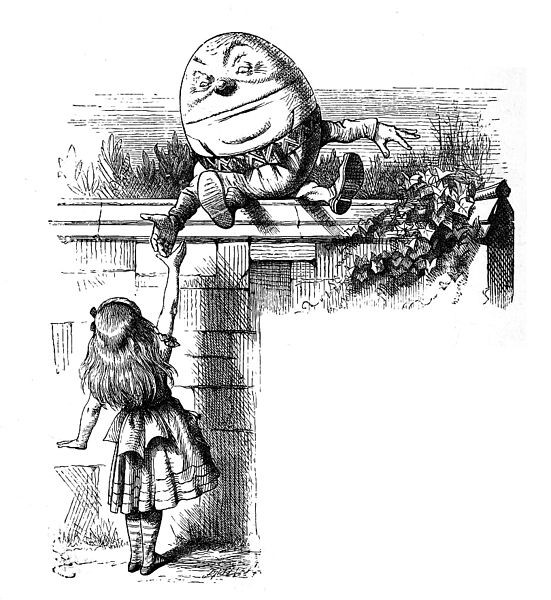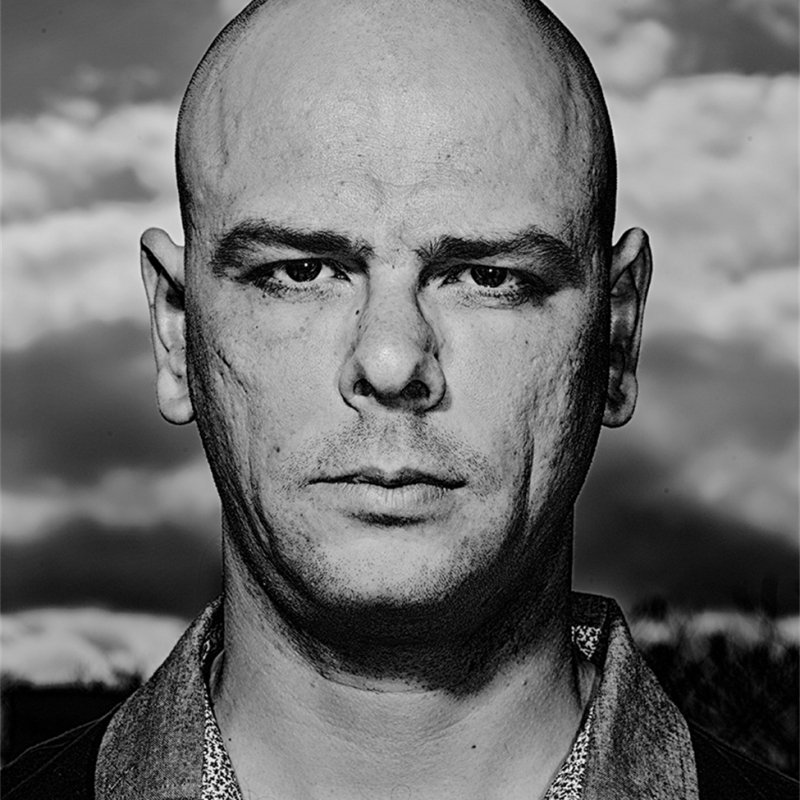Pop en literatuur (45) The Beatles en Lewis Carroll
Vorige week ging het over Lewis Carroll, Grace Slick, Wonderland, dromen en (vooral) drugs. Deze week gaan we nog even op dezelfde voet verder, want John Lennon schreef de Beatles-klassieker ‘I am the Walrus’ naar verluidt grotendeels naar aanleiding van een LSD-trip. En, toeval of niet (waarschijnlijk niet): ook in dit nummer (evenals ‘White Rabbit’ uit 1967) speelt Alice in Wonderland een grote rol. Of eigenlijk meer het vervolg van het boek, Through the Looking-Glass and What Alice Found There. In dit boek belandt Alice achter de spiegel, in een Spiegelwereld, waar ze – je verzint het niet – wederom allerlei merkwaardige wezens ontmoet en bizarre avonturen beleeft. Zo komt ze een tweeling tegen, Tweedledum en Tweedledee. Laatstgenoemde vertelt haar een verhaal, of liever, een verhalend gedicht, getiteld ‘The Walrus and the Carpenter’. Het is de walrus uit dit verhaal die John Lennon terug laat keren in zijn songtekst.
|
The Beatles – I am the Walrus
I am he as you are he as you are me And we are all together See how they run like pigs from a gun See how they fly I'm crying
Sitting on a corn flake Waiting for the van to come Corporation T-shirt, stupid bloody Tuesday Man you've been a naughty boy You let your face grow long
I am the egg man They are the egg men I am the walrus Goo goo g'joob
Mr. City policeman sitting Pretty little policemen in a row See how they fly like Lucy in the sky See how they run I'm crying I'm crying, I'm crying, I'm crying
Yellow matter custard Dripping from a dead dog's eye Crabalocker fishwife, pornographic priestess Boy, you've been a naughty girl You let your knickers down
I am the egg man They are the egg men I am the walrus Goo goo g'joob
Sitting in an English garden Waiting for the sun If the sun don't come you get a tan From standing in the English rain
I am the egg man (How do you do sir?) They are the egg men (The man maintains a fortune) I am the walrus Goo goo g'joob, goo goo goo g'joob
Expert, texpert choking smokers Don't you think the joker laughs at you (Ho ho ho, hee hee hee, hah hah hah) See how they smile like pigs in a sty See how they snide I'm crying
Semolina Pilchard Climbing up the Eiffel tower Elementary penguin singing Hare Krishna Man, you should have seen them kicking Edgar Allen Poe
I am the egg man They are the egg men I am the walrus Goo goo g'joob, goo goo goo g'joob Goo goo g'joob, goo goo goo g'joob, goo goo
|
Lewis Carroll – The Walrus and the Carpenter
The sun was shining on the sea, The moon was shining sulkily, The sea was wet as wet could be, The Walrus and the Carpenter "If seven maids with seven mops "O Oysters, come and walk with us!" The eldest Oyster looked at him, But four young Oysters hurried up, Four other Oysters followed them, The Walrus and the Carpenter "The time has come," the Walrus said, "But wait a bit," the Oysters cried, "A loaf of bread," the Walrus said, "But not on us!" the Oysters cried, "It was so kind of you to come! "It seems a shame," the Walrus said, "I weep for you," the Walrus said: "O Oysters," said the Carpenter, |
Het verhaal achter Lennons tekst is dat hij op een dag een brief ontving van een fan die beweerde dat zijn leraar op school teksten van The Beatles liet analyseren door leerlingen. Hierop besloot Lennon een volledig onbegrijpelijke nonsens-tekst te schrijven.
Als uitgangspunt dienden LSD-hallucinaties, kinderliedjes van vroeger, verhalen van vrienden en, last but not least, het werk van Lewis Carroll, zelf ook al zo’n specialist in het schrijven van totale nonsens. Sterker nog: Carroll is hoogstpersoonlijk de bedenker van het woord ‘jabberwocky’ (vrij vertaald ‘Koeterwaals’), dat het Engelse woordenboek heeft gehaald. ‘Jabberwocky’ is de titel van een gedicht dat Alice in Through the Looking-Glass tegenkomt en dat uit onbegrijpelijke wartaal (‘gibberish’) bestaat.
Lennon was een bewonderaar van Carroll. Mogelijk heeft hij ook de Disneyversie van Alice in Wonderland bekeken en de enigszins verbasterde versie van ‘The Walrus and the Carpenter’ die daarin voorkomt. Over het gedicht zei hij: ‘It never dawned on me that Lewis Carroll was commenting on the capitalist system. I never went into that bit about what he really meant, like people are doing with the Beatles' work. Later, I went back and looked at it and realized that the walrus was the bad guy in the story and the carpenter was the good guy.’
Interessanter dan de vraag of Lennon zich hier inderdaad niet van bewust was toen hij het nummer schreef, is de vraag of hij het bij het rechte eind heeft. In Through the Looking Glass, net nadat Tweedledee klaar is met het reciteren van het gedicht, bespreekt Alice met de tweeling namelijk ook al de vraag wie de slechterik is. Alice heeft eerst een voorkeur voor de walrus, omdat die in elk geval nog iets van wroeging lijkt te voelen over zijn daad (het opeten van de oesters). Maar als Tweedledee opmerkt dat de walrus er méér at, stelt ze haar mening bij. Als Tweedledum dan weer tegenwerpt dat de timmerman weliswaar minder oesters at, maar toch zo veel als hij kon, raakt ze in verwarring om uiteindelijk maar te concluderen dat ze beide ‘unpleasant characters’ zijn. Het probleem waar Alice mee kampt is volgens sommige commentatoren een lastig dilemma uit de moraalfilosofie: moet je iemand beoordelen op zijn daden of zijn intenties?
Dat dilemma is vergelijkbaar met een dilemma waar mensen mee te maken krijgen die teksten interpreteren: moet je je druk maken over de intenties van de maker (of de afwezigheid daarvan) of je alleen bekommeren om de tekst? Bij ‘I am the Walrus’ zijn beide kampen goed vertegenwoordigd. Zo is er een levendig debat over de vraag wie ‘The Eggman’ is. Lennon zelf noemde Eric Burdon, frontman van The Animals als inspiratiebron voor ‘The Eggman’: Burdon zou de merkwaardige gewoonte hebben om tijdens de seks eieren stuk te slaan op zijn partner. Burdon zelf, op zijn beurt, vertelde dat hij dit nooit had gedaan, maar dat het hem eens was overkomen dat een vrouw dat bij hém deed.
Lezers van Lewis Carroll herkennen in The Eggman echter het personage Humpty 'And how exactly like an egg he is!' she said aloud, standing with her hands ready to catch him, for she was every moment expecting him to fall. 'It's very provoking,' Humpty Dumpty said after a long silence, looking away from Alice as he spoke, 'to be called an egg very!' 'I said you looked like an egg, Sir,' Alice gently explained. 'And some eggs are very pretty, you know,' she added, hoping to turn her remark into a sort of compliment.' Deze Humpty Dumpty (de naam is afkomstig uit een bakerrijmpje) staat symbool voor filologen en taalkundigen. Hij treedt met Alice in debat over de betekenis van woorden. Hij is ook degene die het onbegrijpelijke gedicht ‘Jabberwocky’, dat Alice eerder in het boek tegenkwam, van een betekenis voorziet: ‘You seem very clever at explaining words, Sir,’ said Alice. ‘Would you kindly tell me the meaning of the poem called “Jabberwocky”?’ ‘Let’s hear it,’ said Humpty Dumpty. ‘I can explain all the poems that were ever invented — and a good many that haven’t been invented just yet.’ This sounded very hopeful, so Alice repeated the first verse: ’Twas brillig, and the slithy toves ‘That’s enough to begin with,’ Humpty Dumpty interrupted: ‘there are plenty of hard words there. “brillig“ means four o’clock in the afternoon — the time when you begin broiling things for dinner.’ ‘That’ll do very well,’ said Alice: and “slithy“?’ ‘Well, “slithy“ means “lithe and slimy.” “Lithe” is the same as “active.” You see it’s like a portmanteau — there are two meanings packed up into one word.’ Een porte-manteauwoord is een neologisme dat is opgebouwd uit twee bestaande woorden, zoals ‘infotainment’ of ‘brunch’. De Alice-boeken staan hier vol mee en het is niet verrassend dat Humpty Dumpty hier een specialist in is. Het zal voor John Lennon een klein feestje geweest zijn dat iedereen iets anders in zijn tekst las. Een mooie kers op de taart is ‘Goo goo g'joob’. Want – en nee, dit is geen grap – deze non-woorden zijn door vlijtige speurders in iets andere vorm teruggevonden in Finnegans Wake van James Joyce, óók weer zo’n notoir onbegrijpelijk literair meesterwerk: […] or old Kong Gander O'Toole of the Mountains or his googoo goosth she seein, sliving off over the sawdust lobby out of the backroom, wan ter, that was everywans in turruns, in his honeymoon trim, holding up his fingerhals, with the clookey in his fisstball, tocher of davy's, tocher of ivileagh, for her to whisht, you sowbelly, and the whites of his pious eyebulbs swering her to silence and coort; Bedoeld of onbedoeld haalt Lennon in zijn tekst dus ook nog terloops de meest onbegrijpelijke tekst uit de wereldliteratuur aan. En laat James Joyce nou net ook weer een groot fan zijn van porte-manteau-woorden én van Humpty ‘The Eggman’ Dumpty. In Finnegans Wake (net als de boeken van Lewis Carroll beschrijft ook dit boek een droom) wemelt het werkelijk van de porte-manteau-woorden, sommige tevens beschrijvingen van geluiden, zoals deze: ‘Bothallchorachtorschumminaroundgansumuminarumdrumstrumtruminahumptadumpwaultopoofoolooderamaunsturnup!’, die ook een verwijzing naar de naam Humpty Dumpty bevat (‘humptadump’). Verwijzingen naar (en variaties op) Humpty Dumpty komen trouwens op meerdere plaatsen in Finnegans Wake voor. Op de eerste bladzijde bijvoorbeeld in ‘humptyhillhead’ en op de laatste bladzijde ‘humbly dumbly’. Lennon is, mogen we ruim vijftig jaar later wel constateren, ruimschoots geslaagd in zijn opzet om verwarring te stichten. De beste karakterisering wordt wellicht gegeven door Tim, een personage uit de Britse serie The Office, van Ricky Gervais: Teksten interpreteren betekent per definitie je op glad ijs begeven en het is over het algemeen verstandig om je niet te veel aan de intenties van de maker aan te trekken. Betekenis wordt immers niet (alleen) toegekend door de maker, maar op zijn minst ten dele door de lezer/ luisteraar. In het geval van ‘I am the Walrus’ maak ik echter voor één keer een uitzondering. Want hier valt zonder LSD echt geen touw aan vast te knopen. Goo goo g'joob!
Dumpty, dat opduikt in hoofdstuk 6 van Through the Looking Glass:
Did gyre and gimble in the wabe;
All mimsy were the borogoves,
And the mome raths outgrabe.

